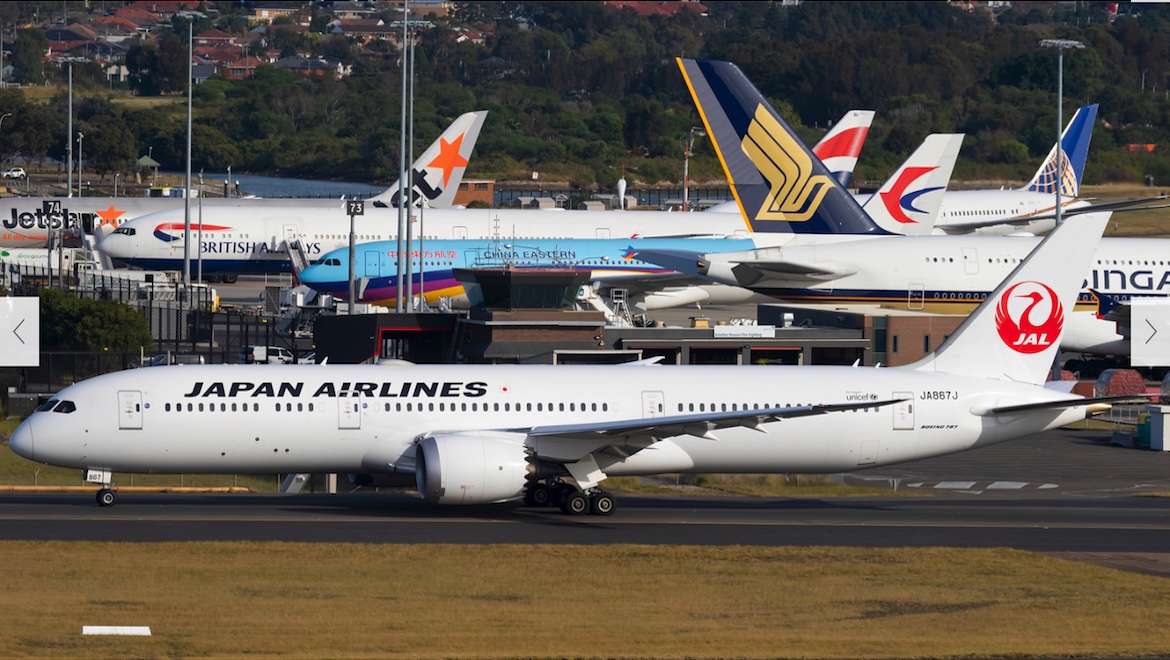
Outgoing Association of Asia Pacific Airlines (AAPA) director general Andrew Herdman says the aviation industry is well placed to navigate its ways through current challenges.
Airlines have faced a number of negatives in 2019, from the volatility in oil prices and a slowing economy to geopolitical events such as the political demonstrations in Hong Kong and the trade dispute between China and the United States.
Infrastructure constraints have also acted as a handbrake on growth, while public trust in aviation has been shaken by the grounding of the Boeing 737 MAX 8 following two fatal accidents.
This has led to lowered profit forecasts for the world’s airlines from industry trade group the International Air Transport Association (IATA).
Despite these short-term challenges, Herdman said the long-term outlook for aviation in the Asia Pacific region was an upbeat one and called on governments to recognise the impact of the industry on national economies.
“The emergence of Asia as a powerhouse driving the global economy during the 21st century naturally creates a sense of optimism for the region’s dynamic air transport industry in the long term,” Herdman said in a statement.
“However, success cannot be automatically assured without robust efforts to support carriers, who continue to face an ever increasing number of challenges to achieving strategic development and growth.
“Given the significant contribution that air transport makes towards wider economic and social development, governments need to adopt a much more positive attitude towards the industry, and work meaningfully towards removing obstacles that hinder the sustainable growth of the industry.”

The AAPA’s annual assembly of presidents was due to be held in Hong Kong on November 21-22.
However, the event was cancelled a week out due to what the association described as the “unpredictability of the situation in Hong Kong”.
Instead, the 15 airline members met in Kuala Lumpur at a closed-door gathering and passed resolutions on aviation infrastructure, cybersecurity, the environment, passenger facilitation, slots and taxation.
The resolutions described airspace modernisation as a “global challenge” that required a long-term strategy supported by appropriate commitment, funding, planning and resources.
Meanwhile, on the environment, AAPA reiterated its support for the International Civil Aviation Organisation’s (ICAO) Carbon Offsetting and Reduction Scheme for International Aviation (CORSIA) to reduce carbon emissions and called on governments to “refrain from applying duplicative requirements on international aviation CO2 emissions”.
The AAPA resolutions also called on governments to “work closely with other aviation stakeholders towards a shared long term vision of harmonised international practices on the facilitation of passengers with disabilities”.
On taxation, AAPA noted the recent introduction of new charges such as Malaysia’s departure levy and New Zealand’s international visitor conservation and tourism levy, as well as levies by governments such as France, Germany, the Netherlands and Switzerland, “often under the guise of environmental initiatives”.
Further, it said a number of airports had imposed or increased passenger service charges as “pre-funding mechanisms to finance future infrastructure facilities”.
“At a time when the industry is already having to cope with an increasingly challenging business environment, and recognising the adverse impact on the wider travel and tourism sector, AAPA renews its call on governments to refrain from increasing the burden of aviation levies in any form on international air travellers,” AAPA said.
AAPA names new director general
In other AAPA news, the association named veteran Singapore Airlines executive Subhas Menon as its next director general.
Menon, who takes up the post on March 1 2020, has served in a variety of senior management roles at Singapore Airlines, most recently as regional vice president for Europe.
“I am honoured to have been chosen to represent and serve the region’s airline community as incoming director general,” Menon said in a statement.
“I am committed to promoting the sustainable development of Asia Pacific aviation, and increasing AAPA’s reach and influence across the region, addressing future challenges and opportunities for aviation in promoting economic and social development.”
Herdman, who is retiring, said it had been an “honour and a privilege” to serve as AAPA director general since 2004.
“Today, the AAPA is a widely respected organisation globally as well as within the Asia Pacific region, and works in close collaboration with national governments, regional and international organisations, and other aviation stakeholders,” Herdman said.
“The Asia Pacific region is already the largest aviation market globally, with further great opportunities ahead of us. Subhas Menon, with his breadth of international and commercial experience, is very well qualified to lead AAPA in its next phase of development.”




